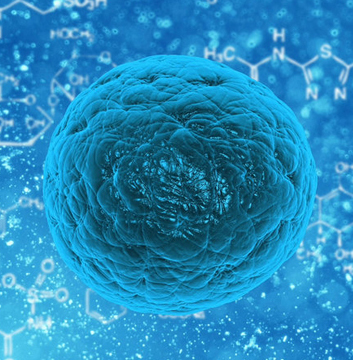
All healthy human immune systems have a first line of defenders: When a germ or infection appears, white blood cells called T cells spring into action against the menace. For reasons scientists have not been able to figure out yet, the immune response mistakenly attacks its own healthy cells, struggling to distinguish between ally and enemy.
An experimental clinical trial introduces a new approach to managing autoimmune diseases.
Published in The Lancet Neurology last week, the authors report the first results from a study of chimeric antigen receptor T cell therapy on a rare form of autoimmune disease called myasthenia gravis.
In CAR T therapy, doctors re-engineer a person’s immune system to identify, attack, and destroy certain proteins on cell surfaces.
“This is a remarkable new approach to treating autoimmune disorders with a newer safer, easier CAR T approach,” says Santosh Kesari, a neuro-oncologist and regional medical director of Providence Southern California, who was not involved in the study.
While Kesari finds the study “Exciting,” he cautions that understanding the true benefit of CAR T therapy depends on the results of randomized double-blind trials-this study was a proof-of-concept to test the safety of administering this treatment to this particular patient population.
Study participant Danny DeBerry, who had myasthenia gravis for 14 years, tells Popular Science in a statement that after multiple doses, the therapy restored his ability to work and travel.
The treatment has its origins as a cancer therapy, which helps stop the cells involved with the formation and spread of tumors.
While effective, traditional CAR T therapy has some downsides.
The process requires collecting T cells, removing them from the body, altering the cell’s DNA in a lab, and reinserting them back into the patient.
The newly engineered T cells may ramp up the immune system too aggressively, releasing a large number of chemicals called cytokines into the blood.
These cytokines create an inflammatory response to infection or cancer that, if prolonged, can damage healthy cells as well.
CAR T cell therapy is also associated with substantial neurological complications.
The current study used RNA instead of DNA to genetically engineer the cells to last for a finite life period.
T cells engineered with DNA can instead live much longer, creating the negative effects.
In the trial, using a CAR T therapy developed by Maryland-based biopharmaceutical company Cartesian Therapeutics, these white blood cells were altered to recognize a marker called B cell maturation antigen.
The authors administered three different doses of CAR T therapy to figure out the highest dose that people could tolerate.
The authors did not notice any signs of neurotoxicity and an inflammatory condition called cytokine release syndrome-two severe side effects common with traditional CAR T therapy.
If additional trials show positive results, people with conditions other than cancer, such as those with dysfunctional immune systems, could benefit from regular CAR T therapy.
Since this type of CAR T therapy uses cells that live for a limited amount of time, it won’t be a one-and-done infusion.
